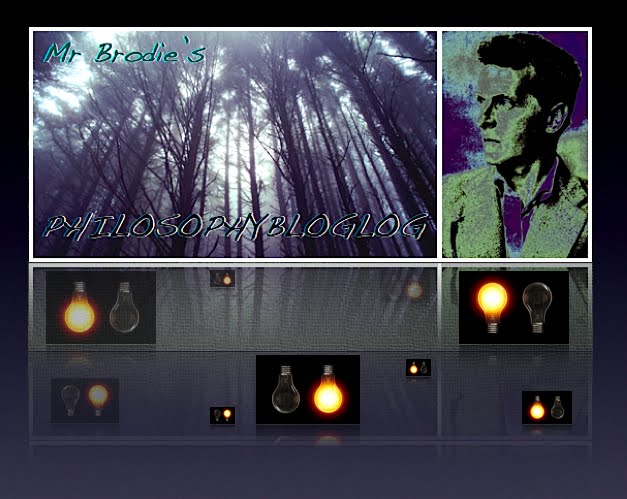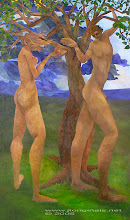We saw how Hume, writing some 60 years later, builds on Locke's empiricist foundations and develops many of his views. Hume also rejects innate ideas and believes that all our thoughts are given through the senses.
Hume believes that;
we can divide the mind’s perceptions into two classes, on the basis of their different degrees of force and liveliness. The less forcible and lively are commonly called ‘thoughts’ or ‘ideas’.
For Hume, these ideas are pale copies of the more direct and immediate perceptions we have when we are actually experiencing something rather than thinking about it. He calls these more direct perceptions ‘impressions’, and explains that he uses this term to mean, 'all our more lively perceptions when we hear or see or feel or love or hate or desire or will.'
So Hume thinks that ideas are got from the way we experience the world physically, emotionally and intellectually (although I'm not sure if he would approve of those divisions of our experience) but that all our ideas are 'fainter perceptions of ... our impressions.' As he puts it, 'all our ideas or more feeble perceptions are copies of our impressions or more lively ones.'
Hume's Marvelous Method for Solving Philosophical Disputes!
Hume's Marvelous Method for Solving Philosophical Disputes!
As Hume believed that all ideas were faint 'copies' of the sense 'impressions' that they originated in, he was able to propose a method for solving certain philosophical problems by tracing the ideas these problems involved back to their original 'impressions'. If an idea could not be traced back to its original sense 'impression' then it must be empty, meaningless and not worth pursuing.
I got you to try to apply this 'method' to the notion of 'a time when nothing happens'. This caused a lot of confusion and 'debate', but eventually we all agreed (I think) that because we could not have experienced a time when nothing happens, we cannot have a sense impression to base our idea on and therefore the idea was empty and meaningless.
It is confusing because we 'think' we can imagine such a time, but we tend to imagine ourselves or someone 'observing' nothing happening, but of course the observation itself is something happening.
So we agreed that what we actually experience as 'time' is in fact change and 'time' as a 'substance' separate from change does not exist if Hume is correct.























No comments:
Post a Comment